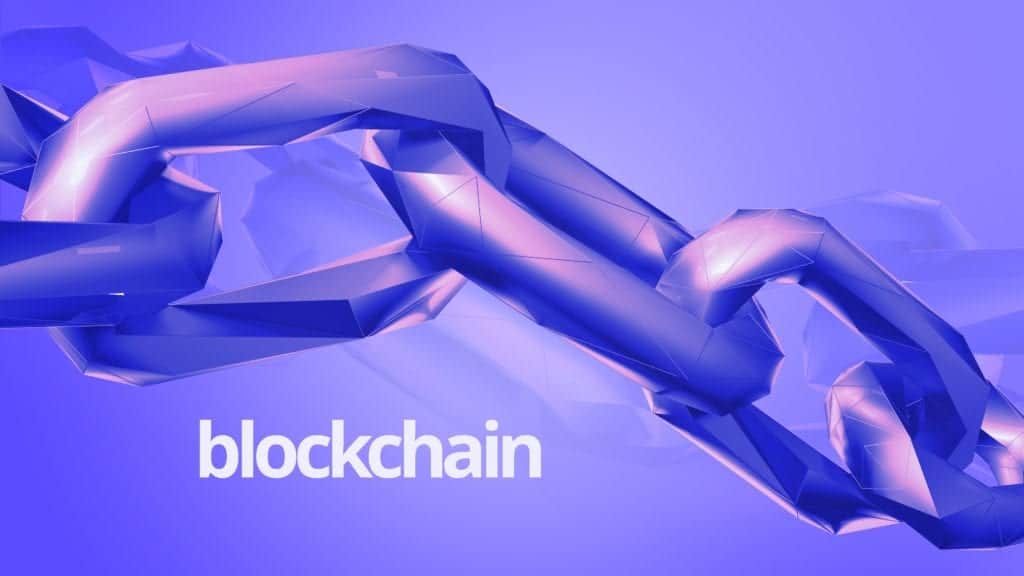Blockchain is basically a ledger; a distributed one. All transactions that occurred on that particular Blockchain are recorded and then stored on the ledger in a form of block data. Once the ledger successfully stores a transaction, it can be removed. This means that with each transaction, the longer the chain of data blocks become.
One of the implications of this is that the complete history of transactions from the recent ones to the first entry is available for verification always. A complex cryptography protects all the data recorded in the distributed ledger and when you possess the key, you can easily unwrap it but without it, the security is impossible to crack.
What makes Blockchain very secure is its distributed nature. Each node in the network possesses the exact copy of the ledger and the entire network constantly checks it.
If one of the nodes in that network has a ledger that is different from that of others in the network, there will be a notification and that divergent node will be flagged and then kicked out from the network.
How Blockchains Really Work
A Blockchain network is generally based on Nodes which are electronic devices. A client is used to connect the devices to the Blockchain and it performs tasks such as validating as well as relaying transactions. When a new node connects to the network, the whole copy of the network’s Blockchain automatically gets downloaded in it.
Each node in the Blockchain is an “administrator” and connects to the network voluntarily. This means the Blockchain network is decentralized.
It is true that Blockchain will undoubtedly disrupt the e-commerce industry. Before explaining the various ways that would happen, it is important to first know the common challenges facing E-commerce. Here are some of the major problems:
- Trust: Sellers and buyers use intermediaries due to the fact that they may not have enough trust in the other party, but the intermediary can be trusted to assure a transaction is faithfully completed. However, this trust is costly as intermediaries usually charge the seller or buyer a fee in order to maintain their ledger.
- Slow Transactions: The supply chain of e-commerce involves various parties with shipping rate and negotiated commissions. Additionally, there is still tendering, ordering, tracking shipment, delivery confirmation as well as costs and chargeback settlement. All these will complicate the entire transaction process and it can cause delay for weeks, and months sometimes.
- Frauds: One of the biggest problems eCommerce companies face is substandard or counterfeit products. This is mainly because of the difficulty in selecting and regulating vendors which ends up diminishing the image of the brand.
- Other Costs: e-commerce presently supports several payment methods such as bank transfers, Debit/Credit card, mobile wallets, Cash on Delivery etc. However, during the payment process, each step draws a free from the sellers/buyers.
How Blockchain Will Disrupt eCommerce
1. Payments
When performing international transactions, there are often frustrations and problems. Although there are solutions such as PayPal, some of the problems encountered are still not covered.
Request Network is a company that is currently trying to provide a currency and country-agnostic solution. This platform is Blockchain-based and it aspires to provide a decentralized platform that facilitates transactions to make it fast, easy and secure for B2C, B2B, and C2C interactions.
This platform is also geared towards providing automated and easy methods for invoices, auditing, and accounting. With Blockchain technology, the platform will be able to disrupt the eCommerce industry for financial transactions efficiently by providing top quality security standards, easy user experience, and low costs/fees for executing transactions.
The fees for using PayPal are high when comparing it to major cryptocurrencies and some other issues. They recently split with eBay, a very valuable partner, and this highlights one of these disadvantages. The reason eBay gave for the slip is the high cost of transactions for sellers and limited options for payment for buyers.
Here are the reasons why Cryptocurrencies is projected to be better than the present digital wallet services:
- Unmatched low fees for instantaneous transactions.
- Anyone can participate because it is country-agnostic.
- There’s no third party that requires financially sensitive and personal information.
2. The Decentralized Marketplace
Both the cryptography and network provides great security. This shows that Blockchain technology is secure, so businesses and individuals can directly transact and interact with one another without any need for an intermediary.
Although they may need to pay some minor fees for the network the Blockchain uses to validate transactions and secure the network. The seller and buyer don’t have to pay fees to an intermediary/marketplace company.
E-commerce will now be conducted on platforms that are based on Blockchain applications. Generally, blockchains are decentralized, so there is no company or central party that dictates the rules and makes decisions on how users will interact/transact with each other.
The users (both businesses and individuals), will determine the way the platform will function and develop. The Blockchain will constantly be upgraded by the developers that created it but the upgrade can only be done if the community agrees.
3. Supply Chains
Blockchain technology makes the visualizations of supply chains incorruptible. Although this is not yet well established because Blockchain still needs mass adoption. Once this occurs, you will be able to directly see the whole chain of events/history of a product with just a click or tap.
The Blockchain will be able to directly show if the product is fair-trade, authentic, organic, or contains chemicals.
4. Secure Data
The current method of storing data has a major flaw – data are stored in one central place and are controlled completely by a single, central party. This makes it vulnerable to cybercriminals as they are always looking to steal large databases. The costs of Cybersecurity are too high and there is also less flexibility.
The decentralization of Blockchain also implies that data storage is decentralized. It is possible for cybercriminals to hack individuals, but they’ll get the information of only the individual part they hack. It is virtually impossible to hack a whole Blockchain.
Implementing this technology in e-commerce will help save loads of investments.
5. Management Systems
A Blockchain can provide an efficient, fraud-proof and secure backup system which can be used by any company. The tasks you can use Blockchain applications for are:
- Logistics
- Accounting
- Budgeting
- Inventory Control
- Payroll System
In order to properly automate managerial processes, you can add limits, thresholds and time stamps to your Blockchain applications.
6. Smart Contracts and Intellectual Protection
Ecommerce companies that sell to other individuals and businesses can create contracts regularly. Blockchain applications can be used to set up various kinds of contracts which many customers can implement.
Also, mobile apps and websites often need to secure original content. Blockchain can be used to register this content thereby providing a great proof of ownership.
7. Authenticity of Products
One of the Blockchain applications is that it can capture the whole history and touch point of a product. This will make it easier to know if a certain product is authentic.
This is usually applied by merchants who sell luxury goods and unique merchandise like art.
8. Loyalty Programs
The main functions of Loyalty programs are (a) Accrual of Loyalty points (b) Redemption of loyalty points. Blockchain can be used to facilitate a good contract that will help manage both functions.
Additionally, by utilizing an established cryptocurrency like Bitcoin, you can use Blockchain to easily redeem loyalty points.
9. Identity Management
Blockchain can be used to effectively eliminate identity theft. Blockchain assigns each user a unique code and it is often used for identity verification. This capability has been adopted already by many financial services organizations.
10. Crowdfunding
Crowdfunding is also another strategy used by investors and merchants to raise money. Through cryptocurrencies, Blockchain has really made the Crowdfunding process easier and more secure.
Related Topics
- What is a Smart Contract
- Best Cryptocurrency Exchanges in Nigeria
- How to Buy Tether with Naira
- Best Bitcoin Payment Gateways
- How to Buy and Sell Bitcoin
- Mining Bitcoins
- Transfer Money from UK
- Mobile Banking in Nigeria
- Mobile Money in Nigeria
- Internet Banking
- Cryptocurrency CFD Trading
- What is Monero?
- Bitcoin Usage Tips
- Investing In Bitcoin and Cryptocurrency CFDs
- Ways To Use Blockchain in Business







